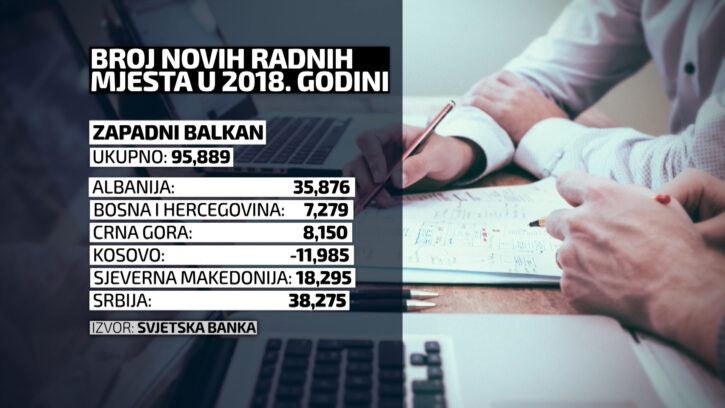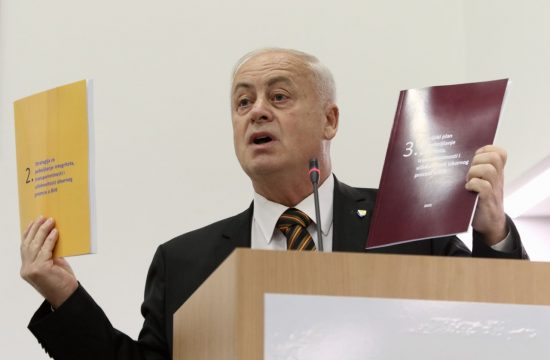
According to the World Bank, out of the nearly 96,000 new jobs in the Western Balkans, only 7,200 were opened in Bosnia and Herzegovina last year and employers in the country say that there are less and less qualified workers they can hire because of the massive emigration.
The World bank statistic is in stark contrast to earlier statements made by the Chairman of Bosnia’s Council of Ministers, Denis Zvizdic, who said that about 100,000 new jobs were created since 2015.
“When we took over in April 2015, there were 717,000 people employed, and in February 2018 the number of those employed was 810,000,” he said last year, pointing out the difference of 100,000 new jobs.
The Prime Minister of Bosnia’s semi-autonomous Federation (FBiH) entity, Fadil Novalic, also spoke about a large increase in employment.
“The FBiH Prime Minister said that, according to data, there was an increase in employment in all Cantons, 38,000 in total during this mandate,” an FBiH Government press release from January 1, 2018, said.
According to economy expert Vjekoslav Domljan, the decrease of unemployment in Bosnia is partly due to people having left the country.
On the other hand, employers say they can’t find qualified workers in Bosnia.
“We now especially have a problem with qualified workers, specialists, technicians, CNC operators, people in the IT sector, drivers,” Mladen Pandurevic, from the Association of Employers in FBiH, told N1, adding that offering higher salaries does not fix the problem either.
While Bosnia’s economy is growing, it is not happening fast enough for citizens to perceive it. According to experts, growth is so slow that, in order for Bosnia to reach the development level of some EU countries, it would take several decades.
A World Bank analysis shows that Bosnia’s economy grew by three per cent last year. The predicted growth for the next two years is 3,4 per cent and 3,9 per cent.
According to Domljan, this is not enough.
“If this level of growth would continue, then the GDP in Bosnia and Herzegovina, which is now about 5,000 US Dollars, would double in 23 years. So only in 23 years, we would have it at 10,000 US Dollars, which is what it is in Romania now,” he said.
But Bosnians who N1 spoke to said they do not feel any economic improvement, apart from some who said that pensions have increased.




